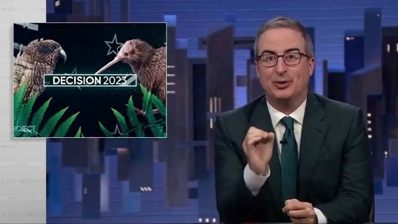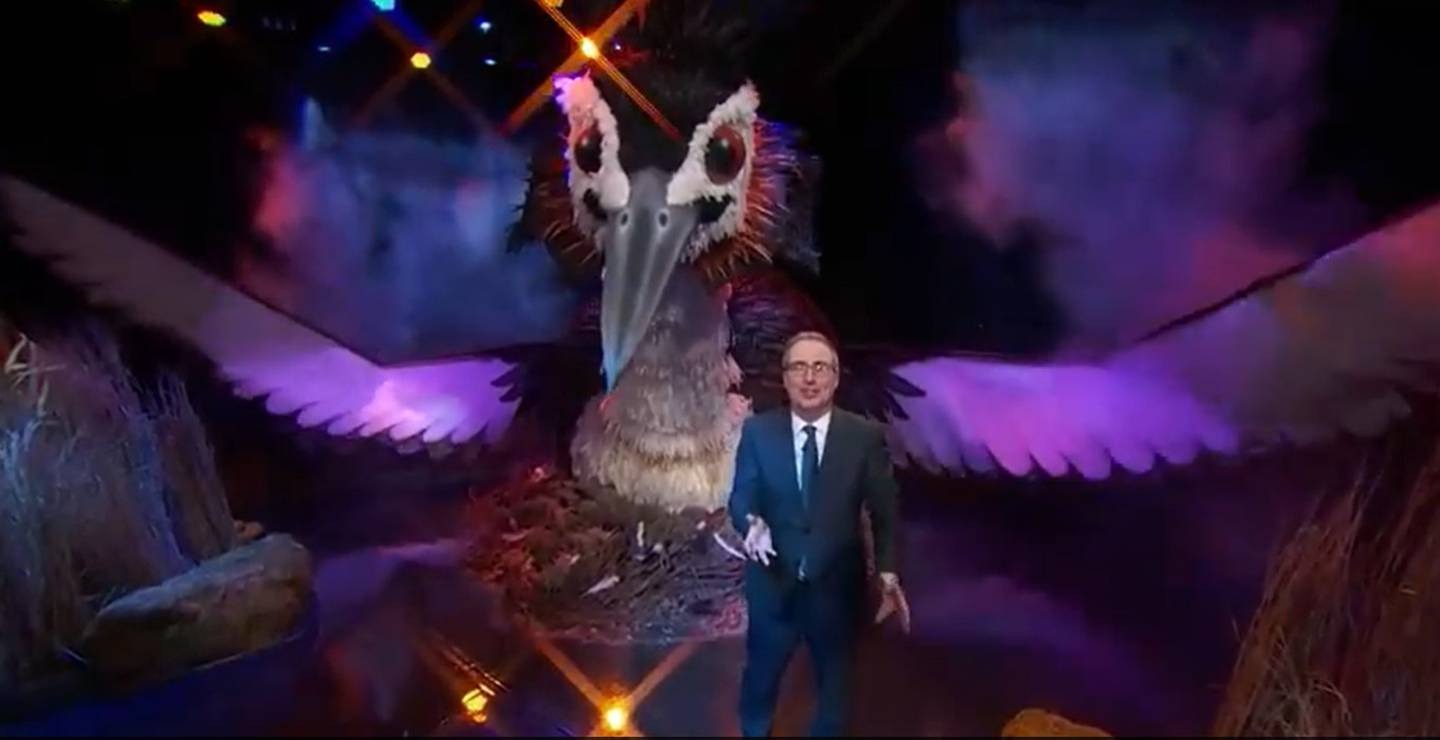US talk show host John Oliver’s hilarious NZ Bird of the Century campaign
- Publish date
- Tuesday, 7 Nov 2023, 9:19AM

US talk show host John Oliver has weighed in on a very important New Zealand matter: The upcoming Bird of the Century competition.
The competition has previously been dubbed Bird of the Year, but this year, with competition runners Forest and Bird turning 100, they have decided it’s time to name the Bird of the Century, and Oliver was determined to cast his vote.
While hosting Sunday’s episode of Last Week Tonight With John Oliver, the host not only made time in his busy show to explain what the competition is, he also campaigned for his bird of choice: the pūteketeke.
Confessing he would like his chosen bird to have “the biggest landslide in the history of the competition”, he first explained to viewers why New Zealand is holding the election in the first place.
Sign up to Coast's newsletter for exclusive prizes and to keep up to date with the latest.
“This is a big deal, New Zealanders love birds,” he exclaimed. “They’re famously known as Kiwis after the kiwi bird and birds feature prominently on their currency, which is frankly much better than what US bills have on them.”
Going on to give viewers some background of the competition, he spoke about the scandal and drama that has plagued it throughout the years including findings of voter fraud or attempted fraud in 2015, 2017 and 2020, as well as the controversy after a bat won in 2021.
Quoting Forest and Bird’s response at the time, he said: “We’re not mad, just impressed that someone cares enough about New Zealand’s native birds to rig the competition. This all speaks to how much the people of New Zealand justifiably love this competition.”
And it seems Kiwis aren’t the only ones who are passionate about the cause, as Oliver passionately touched on the “bulls**t” kākāpō disqualification in 2008 and 2020 after the competition attempted to shine a light on the country’s lesser-known birds.
“We don’t do that for other awards,” Oliver sarcastically quipped, adding: “Oh sorry Beyoncé, you’ve already won 32 Grammys. You are disqualified from now on so that someone worse than you can win, I hope you understand.”

Clearly outraged by the decision, Oliver began advocating for the “world’s fattest parrot”, claiming the kākāpō “earned those wings” and proceeded to share the viral clip of Stephen Fry and zoologist Mark Carwardine’s interaction with the bird in 2009 which saw a kākāpō attempt a mating dance with Carwardine.
Elsewhere in the 13-minute segment, Oliver presented his viewers with an in-depth guide on the election, revealing to US fans the birds currently campaigning – including a tawaki, kuaka, tūī and kārearea – have their very own campaign managers. Before revealing the competition is not restricted to New Zealanders.
Telling viewers that anyone with a valid email address can vote, Oliver said: “And by now, I’m pretty sure you know where this is going,” before revealing his campaign for the pūteketeke, or the Australasian crested grebe.
Confessing he chose the bird because it “looks like Pauly D f****d a swan,” and he finds the name “fun to say”, he shared fun facts about the bird including that they are known for carrying their babies on their backs.
He also spoke about their mating dance, “where they both grab a clump of wet grass and chest bump each other before standing around unsure of what to do next”.
“I have never identified with anything more in my f*****g life,” he said.
Telling viewers the pūteketeke’s existence is under threat, he stood up from his desk and walked over to another stage where he revealed a huge animatronic version of the bird and urged viewers: “So please before the contest closes at the end of this week, got to votethisbird.com and select the pūteketeke as your number one vote.”
He concluded his campaign for the bird by jokingly adding: “After all, this is what democracy is all about, America interfering in foreign elections.”
This article was first published by the NZ Herald and is republished here with permission.

Take your Radio, Podcasts and Music with you




